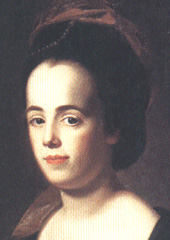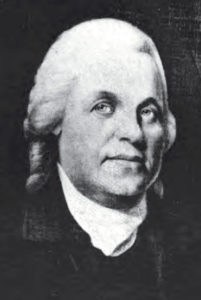Pethick-Lawrence, Frederick William
Frederick William Pethick-Lawrence (December 28, 1871-September 10, 1961), suffragist and Labour politician, was a member of the British Cabinet following World War II who worked
Frederick William Pethick-Lawrence (December 28, 1871-September 10, 1961), suffragist and Labour politician, was a member of the British Cabinet following World War II who worked
William Arthur Peacock (August 23, 1905-September 15, 1968) was a British Universalist and Unitarian minister, Labour Party politician, and a journalist in religion and politics.
Ephraim Peabody (March 22, 1807-November 28, 1856), an early Unitarian missionary to the (then) western United States and later a prominent and beloved minister of
Kenneth Leo Patton (August 25, 1911-December 25, 1994), identifed as one of the major poets and a prophet of contemporary liberal religion, was a voice
Charles Edwards Park (March 14, 1873-September 20, 1962) was a Unitarian minister who served First Church in Boston, Massachusetts for forty years. One of the
Ephraim Nute, Jr. (September 18, 1819-January 21, 1897), an outspoken and aggressive abolitionist, was the American Unitarian Association (AUA) missionary to the Kansas territory during
Jerzy (George) Niemirycz (1612-1659) was an ambitious Arian nobleman and statesman in the Polish-Lithuanian Commonwealth. During his later life the Commonwealth, which included the Ukraine,

Judith Sargent Murray (May 5, 1751-June 9, 1820), essayist, poet, and playwright, was the most prominent woman essayist of her day. She argued forcefully for

John Murray (December 10, 1741-September 3, 1815), a preacher from the British Isles, became the most widely-known and respected voice of American Universalism during the
Cyprus Richard Mitchell (April 5, 1881-January 27, 1955) was a liberal Australian minister who lived, worked, and studied in America. During the First World War,
Lee Sullivan McCollester (June 5, 1859-December 26, 1943) was a Universalist minister, Professor of Religious Literature and Chaplain at Tufts College (now University), and the
Jean Mayer (February 19, 1920-January 1, 1993), a renowned French-American scientist, physiologist, nutritionist, educator, was the tenth president of Tufts University. Under his visionary leadership
Leonard Mason (February 7, 1912-December 26, 1995), a British Unitarian humanist minister, who served churches in England and in Montreal, Quebec, was one of the
Charlotte Garrigue Masaryk (1850-1923), first First Lady of Czechoslovakia, was born in Brooklyn, New York. Her father was Rudolph Garrigue, a businessman of Huguenot background
James Martineau (April 21, 1805-January 11, 1900) was a Unitarian minister and educator, and a widely influential theologian and philosopher. As lecturer and Principal at
Harriet Martineau (June 12, 1802-June 27, 1876), a pioneering British journalist and writer, grew up Unitarian and was for a time a Unitarian apologist. A
Horace Mann (May 4, 1796-August 2, 1859), was an educator and a statesman who greatly advanced the cause of universal, free, non-sectarian public schools. Mann
Angus Hector MacLean (May 9, 1892-November 11, 1969), Universalist minister, theological school professor and dean, played a major part in reshaping the philosophy and practice
Charles Harold Lyttle (July 16, 1884-May 2, 1980) was a Unitarian minister and professor of Church History at the Meadville/Lombard Theological School in Chicago for
Dorothy Livesay (October 12, 1909-December 29, 1996) was one of the leading Canadian poets of the twentieth century. Her free verse poetry probes the mysteries
Alfred McClung Lee (August 23, 1906-May 19, 1992) and Elizabeth Briant Lee (September 9, 1908-December 9, 1999) were leading 20th-century sociologists who published breakthrough studies
John Howland Lathrop (June 6, 1880-August 20, 1967) was a distinguished Unitarian minister, social activist and peace advocate. He said in 1936, “Human associations are
Andrew Yoshinobu Kuroda (December 29, 1906-February 19, 1997), the first an* ordained Unitarian minister of Japanese ancestry in the United States, served the Japanese Unitarian
Born in Gardner, Massachusetts, Abner was the sixth of ten children of Timothy and Moriah Stone Kneeland. His formal education stopped after a year in